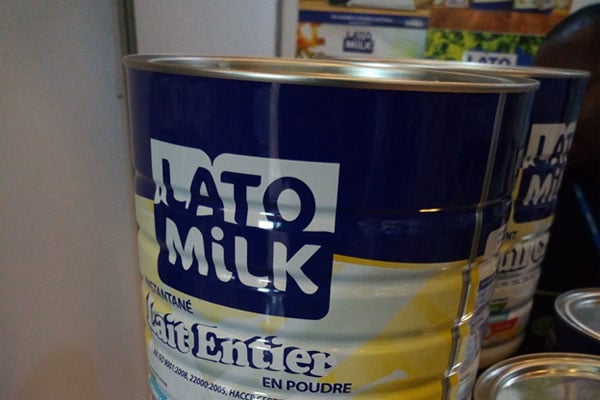Prime
Manufacturers, private sector ask govt to engage Kenya over ban on powder milk

Kenya has previously banned Lato milk from its market before relaxing the ban recently. Photo / File
What you need to know:
- On Monday, Kenya announced a unilateral ban on all powder milk imports due to an expected increase in milk production
- Manufacturers and the private sector say Kenya's unilateral ban on powder milk goes against the East African Common Market Protocol
Uganda Manufacturers Association (UMA) and the Private Sector Foundation Uganda have appealed to government to engage its counterparts in Kenya over its decision to unilaterally ban importation of powdered milk products.
The appeal follows a letter in which Kenya Dairy Board ordered for an indefinite suspension of milk powder imports.
In a March 6 letter, Kenya Dairy Board said the expected rains this month will significantly boost milk production, thus reducing the need for imports.
“In anticipation of the long rains, government has stopped importation of milk powders to cushion the industry from surplus production and low producer prices,” Ms Margaret Kibogy, the Kenya Dairy Board managing director, wrote, noting that the board had temporarily suspended the issuance of milk import permits until further notice.
Reacting to the suspension in Kampala yesterday, Dr Ezra Rubanda, the UMA executive director, told Monitor that as manufacturers, they had reached out to responsible government agencies to understand the implication of the ban, which seems to have unilaterally banned any powered milk imports into Kenya.
However, he also noted, manufacturers were “engaging our counterparts in Kenya [Kenya Manufacturers Association] to interest Kenya Diary Board to appreciate the bigger picture of a regional market”.
It was not readily clear if UMA had made any headway by press time yesterday.
Mr Stephen Asiimwe, the Private Sector Foundation Uganda executive director, said that whereas Uganda was a good trading partner with Kenya, the decision to unilaterally ban products including from within the region, was against the spirit of the East African Community.
“Whenever these bans come we don’t reciprocate. So, their action is not in the spirit of the East African community,” he said, noting that whereas government should diplomatically engage Kenya, the option of other measures, which he did not clarify, should be left open to send a signal.
In 2020, manufacturers warned government against handling Kenya with soft gloves as it banned a number of exports from Uganda from its market.
Manufacturers also noted that they were frustrated “over government’s inability to decisively resolve the unfair trade practices subjected to Uganda by Kenya in blatant disregard to EAC common market commitments”.
“Yes, Uganda believes in regional integration. However, Uganda must benefit from the integration. UMA thus demands that government of Uganda changes tactics to retaliate against partner states that breach the EAC Common Market Protocol,” a statement released then noted.
However, President Museveni has previously ruled out any retaliation measures, noting that countries that are looking towards economic and political unification can’t be seen imposing trade restrictions.
“I saw people say reiterate. I will not accept because [then president of] Kenyatta is a very friendly person, very clear-headed on business because he is a businessman himself. He is also very clear-headed on African issues,” he said.
The ban comes at a time when President William Ruto has previously indicated that he will lift any ban on goods coming within East Africa as the country seeks to find new markets for its products instead of imposing restrictions to protect the largely small market within Kenya.
Monitor could not readily establish how government will react in the face the new unilateral ban.
Previously banned goods
Kenya, has at different intervals, banned a number of Ugandan products from entering its market, among which include milk, sugar, beef and poultry products, among others.





